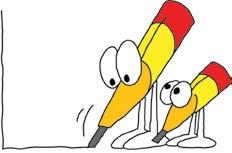

Little Learners Love Literacy®
2025 Catalogue
WHAT’S NEW? Workbooks



















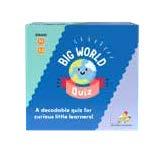

















WELCOME
Dear colleague,
Welcome to the 2025 Little Learners Love Literacy® catalogue!

At Little Learners Love Literacy®, our team is committed to supporting teachers who provide evidence-based instruction, ensuring that children have the best opportunity to become fluent readers, writers, and spellers. We believe every child deserves explicit and sequential literacy teaching from day one, giving them the strong foundation they need to succeed.
By listening to your feedback we aim to provide the tools and guidance you need to achieve your goals in the classroom.
Last year’s highlights included the launch of our user-friendly digital platform – Little Learners Love Literacy® Online. This platform provides a simple and smart resource for teaching Little Learners Love Literacy® with confidence (read more page 11). We also celebrated winning the Speech Pathology Australia award for best decodable book series for the second year in a row! The Fox Kid chapter book series and Little Learners, Big World nonfiction have both received this prestigious award for being high quality, innovative and engaging (read more page 45).
This year we look forward to supporting you with structured literacy implementation and curriculum change. We have a range of exciting new resources including decodable books, workbooks, practice games, Year 2 teaching resources and online content!
Have a great 2025!
The Little Learners Love Literacy® team

































Little Learners Love Literacy
Teaching ALL children to read, write and spell with confidence.
Evidence-based research, referred to as ‘the science of reading’ and the ‘science of learning’, stresses the importance of explicit and sequential literacy teaching. Our goal is to support this teaching in every classroom from the start of school, giving children the best possible chance to develop into fluent readers, writers, and spellers.

Our mission is to teach ALL children to read, write and spell with confidence.
Research-informed approach
Little Learners Love Literacy® is a sequential, explicit literacy program backed by research, and experience. Our teaching focuses on phonemic awareness, the alphabetic code (phonics), vocabulary and linking the teaching of reading, spelling and writing – no guessing strategies! The program encompasses all the vital components of a structured literacy program – explicit teaching informed by assessment data, a carefully developed scope and sequence and an engaging range of decodable books and games, as well as our rigorous and supportive professional learning services.
Cognitive load theory demonstrates how easily our children’s working memories can be overloaded and how their precious attention can be easily lost in our classrooms. For this reason, Little Learners Love Literacy®’s focused lessons and weekly plans comprise a number of engaging and explicit teaching and practice routines, which are used throughout the program – allowing children to focus on what they are learning, not how they are learning.
Explicit teaching sequence
Our cumulative teaching sequence ensures that children are never asked to read or write something that is too difficult for them or that they have not yet been taught.
Stages: 1 2 3 4 +4 6 : 5
Our sequence is cumulative and carefully planned to move children towards mastery of the alphabetic code and morphology for both reading and spelling. See pages 8–10.



OUR PROGRAM
Mastery of skills and knowledge
Little Learners Love Literacy® is designed for whole-class instruction in Foundation, Year 1 and into Year 2. additionally be used for intervention
The program covers:
It can wareness
• phonemic awareness and phonics for spelling and reading
• handwriting
• fluency
• vocabulary and comprehension
• morphology.
Daily reviews, interleaved practice and lots of consolidation is built-in to support mastery.
Multitiered system of supports

The Little Learners assessment suite supports educators to reveal and address any gaps through timely Tier 2 interventions.


Engaging resources
Our beautifully designed resources all have purpose. Each resource provides structured practice of taught reading and writing skills matched to the Little Learners stages. Our range of resources are easy and enjoyable to use at school and at home.
Little Learners Love Literacy® comprises:
• teacher resources
• practice and application games
• decodable books
• assessments
• professional learning
• LLLL Online.




Case Study
Pakenham Springs Primary School, Victoria

Pakenham Springs Primary School in Victoria began using Little Learners Love Literacy® in 2021. Learning Specialist and Year 1/2 teacher Anna Dougall shares how the program transformed her school’s results.
The systematic approach of Little Learners has meant that students have the tools and confidence to have a go and feel successful.
Anna Dougall
Why Little Learners Love Literacy®?
“We were concerned with our reading results in our junior school (Foundation – Year 2) and we didn’t seem able to close the gap between those that learnt to read relatively easily and those who really struggled. When we began to review our teaching practice and instructional methods, Little Learners seemed the obvious choice We were impressed with the systematic approach and how it aligned with the science of reading, and being Australian-based was a big advantage over similar programs.”
Implementation
With the staff onboard and willing to rethink their teaching practice, the school began the transition to the Little Learners program “We could see from the Foundation classrooms how much the students engaged with Milo’s Birthday Surprise and how that engaging and explicit teaching was translating into improved student results,” said Anna
“We immediately saw the confidence of our students increase as they weren’t left to guess; they could apply the knowledge to read accurately.”




Anna Dougall
Case Study
Pakenham Springs Primary School
Results
“It’s so great to see the students read with enthusiasm and it has also been really exciting to see how confident our students are when writing,” said Anna. “The systematic approach of Little Learners has meant that students have the tools and confidence to have a go and feel successful. Foundation students love creating little stories about Pip, Tim, Sam and Tip and Year 1 students often use the character cards and sound cards as writing prompts.”
Year 1 Little Learners Assessment of Reading Skills - decodable text results
Year 1 2021 Term 1

Year 1 2024 Term 1

Number of students reading at Stage 7.1-7.3 increased from 10.8% to 50.5% at the start of Year 1.
Advice for schools
“The biggest recommendation I can make is commit to the program wholeheartedly. Train your teachers, communicate with parents about what you’re doing and why, and make sure you have the resources for the students to apply their learning,” said Anna.
“Having access to decodable books and supporting resources is essential. The biggest change we have noticed has been since our students have been able to really embed their learning by having plenty of good quality decodable texts to read, both at school and at home.”
Sharing the journey with parents has also been valuable. At the school’s Foundation information sessions, parents are introduced to the school’s approach to teaching literacy using Little Learners Love Literacy®. “This ensures that from the beginning parents are clear on how we explicitly teach literacy and how parents can best support their child at home.”


Group Reading “It’s so great to see the students read with enthusiasm.”





St Joseph’s Primary School, NorthcoteApollo Parkways Primary School
Small
Pip and Tim, Stage 7.2 Ha! Ha! Ha!
Warratah Specialist School
What am I? worksheet
Little Learners Love Literacy® Foundation Teaching Sequence
Little Learners Love Literacy®
Little Learners Love Literacy® Year 1 Teaching Sequence
Little Learners Love Literacy® Year 2 Teaching Sequence
Term 1
Week 1Week 2Week 3Week 4Week 5Week 6Week 7Week 8Week 9Week 10
Stage 7 Review
Term 2
Term 3
1Week 2Week 3Week 4Week 5Week 6Week 7Week 8Week 9Week 10
Term 4
Little Learners Love Literacy® Online
Quality phonics teaching for all children.
Stages: 1 2 3 4 +4 6 : 5
✓ Phonics ✓ Reading ✓ Spelling ✓ Morphology
✓ Handwriting ✓ Vocabulary ✓ Comprehension
What is it?
Little Learners Love Literacy® Online provides a simple and smart solution for all schools to teach structured literacy with confidence It contains decodable eBooks, lesson plans and slides, practice resources, professional learning support and more!
How do I use it?
LLLL Online has been designed to support educators to teach the program with fidelity and to save time! Use the lesson slides to support Teacher Activity Resources books for each LLLL stage
Teacher Activity Resource LLLL Online Decodable Books and Practice Games
• Weekly lesson plans
• Daily lesson scripts
• LLLL instructional playbook
• Practice resources


• eBooks for take-home and class choral reading
• Slides for core revision and teaching routines
• Access to small group teaching notes for each decodable eBook

Build fluency and work towards mastery with decodable fiction andnonfiction, and a range of engaging reading and writing practice games

Look inside
Lesson planning done!
With our weekly plans, linked slides and resources at your fingertips you’ll have time to do the other 1000 things on your ‘to do list’!
Find weekly plans with ease

Prepared lesson slides to support explicit teaching
Download the weekly plan


Teach core Little Learners Love Literacy® instructional routines with fidelity using pre-prepared slides.

Introduce new letter sound correspondences with Milo’s Birthday Surprise.
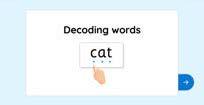

Curated wordlists for explicit teaching of reading and spelling.


Animations support consistency in handwriting instruction.
Printable resources at your fingertips
If you are not using the Little Learners Love Literacy® Workbooks, you’ll need to print a number of resources for the week which students will stick into their writing book or scrapbook. Download relevant activity sheets you need for the day with ease via the weekly plan.

Search for resources in our curated resource bank.
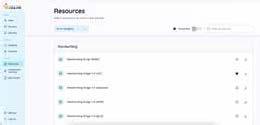
Linked slides and resources
A library of 150+ engaging decodable eBooks!
Our eLibrary contains Australia’s favourite Little Learner decodable books – perfect for whole-class choral reading and home reading practice
Assign, track and manage
Easily assign decodable eBooks to students and monitor their progress by viewing books completed, post-reading scores and allows student self-assessment on our classroom app



Supporting students




Students can access their assigned eBooks on all devices Audio support allows students to tap the words to hear them decoded as a model.

Post-reading activities


Check comprehension including vocabulary knowledge, as well as some phonics and phonemic skills, through post-reading activities Students can refer back to the eBooks to find answers



Linked teacher notes Small Group ReadingTeacher Notes are attached to every eBook to support best practice in small group or whole-class reading instruction
Professional Learning resources at your fingertips!
Whilst the 2-day professional learning workshop is essential for teaching with fidelity, so is ongoing learning. Little Learners Love Literacy® Online’s professional learning resources area allows you to refresh your knowledge when you need it with blog articles, downloads, recorded webinars, videos and more.
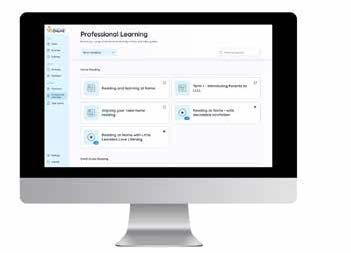


Take a look for yourself by signing up for a week’s FREE trial. Book a free demonstration and ask questions.
Subscription Options
We offer 3 annual subscription options to schools:
Level 1
50 users
$750 per year
($15 per user per year)
Level 2
100 users
$1,400 per year
($14 per user per year)

Level 3
150+ users
$1,950 per year
($13 per user per year)
Subscription is valid 12 months from the day of purchase. As with all Little Learners Love Literacy® resources, schools can opt to pay by card or invoice at checkout.
Key features
• Perfectly complements printed resources to provide a seamless experience for teachers and students
• Provides weekly planning guidance for each stage.
• Offers simple, smart and easy functionality.
• Boosts consistency across classrooms.
• Saves time preparing resources.
Professional Learning
Professional Learning
Our services
Making a change and driving improvement in your school can be hard work and we are here to support you every step of the way.
We offer an array of professional learning opportunities, such as workshops, online webinars, and resources to help support your professional development, so you can teach Little Learners Love Literacy® with fidelity and confidence.
Professional learning workshops
Our professional learning workshops will prepare you to implement evidence-based reading, spelling, phonemic awareness and writing routines in your classroom.
Perfect for: Foundation & Year 1 teachers, Literacy leaders, APs and Principals.
Two-day workshop: Teaching Little Learners Love Literacy®
This professional learning will lay vital foundations by exploring key theory concepts including the science of reading, cognitive load theory and
explicit teaching. Classroom footage and a range of interactive activities will support you in mastering the practical elements of the program including planning and assessment.
This rigorous and engaging two-day workshop can be completed in person or online.
Our two-day workshop comprises:
• four online pre-work theory modules
• two-days of interactive training
• a professional learning kit.




INTERSTATE?
Look out for in-person workshops in NSW, QLD, WA and SA. Or contact us to request a workshop in your area.


Your online pre-work theory modules and professional learning kits:
Your professional learning kit:




After-school online workshop – six sessions




If two full days are hard to manage, our after-school online workshops run for 1 hour and 45 minutes, across six weeks. This option includes the four interactive online pre-work theory modules, six online workshop sessions and a professional learning kit.
In-school workshops
Book a Little Learners Love Literacy® workshop to take place at your school. Our presenter will come to you and supply the resources needed, then will continue to support you throughout your LLLL journey. Maximum 25 people. Module
More professional learning
Work with a Little Learners Coach
Book a day or more with a coach who will work with you to make improvements, recap areas of training, and support you to put improvement plans in place. Your booking will include a consultation phone call with the coach beforehand to ensure your needs are understood before the day/s. This is ideal if you and your team have already completed the two-day workshop.
Online check-in session
A short Zoom session with one of the Little Learners team might be just what you are looking for to stay on track. This is perfect for ongoing queries on specific activities or teaching approaches.

Webinars
Our online webinar schedule includes a range of topics for teachers, school leaders, private practitioners and parents. Each webinar includes an opportunity to ask questions and discuss the topic. Topics include:
• An introduction to Little Learners Love Literacy®
• Teaching and assessing fluency
• Teaching spelling
• Reading assessment with the LLARS
• Spelling assessment with the LLASS
• Decodable books – what are they and how to use them
• Small group reading with decodable books
• Intervention with LLLL
• Teaching and assessing Heart Words
• Explicit Teaching with LLLL
• Introduction to LLLL Online
• Weekly Planning with LLLL
• Teaching Handwriting with LLLL
• Teaching Heart Words with LLLL

Really enjoyed the presentation. Very affirming! Lots I am already doing and a few new tips and ideas. Loved it. Thank you!
Andrea

Professional learning resources
YouTube channel
This is a great resource to learn more about teaching with Little Learners Love Literacy®. Listen and view sample books, see resources in action and grab quick tips.
Facebook group
Join our exclusive members-only Facebook group to share thoughts and questions with other schools using Little Learners Love Literacy®
Monthly newsletter
Subscribe to our monthly newsletter for the latest news, professional learning opportunities and evidence-informed literacy resources including free downloads, blogs and more
Our blog
Subscribe to our blog to get updates and articles straight to your inbox. We’re always learning about literacy best practice and we like to share what we know!
Taster events
You may be wanting to talk to another school who has been through the implementation journey themselves Check our online calendar for free taster event opportunities near you


Contact us for support, quotes, bookings and more: hello@learninglogic.com.au 0455 491 199 littlelearnersloveliteracy.com.au
Teaching Resources

Teacher Activity Resource Books
Explicit teaching support and carefully constructed practice for reading, spelling and writing.
Stages: 1 2 3 4 +4 6 7 : 5
✓ Decoding ✓ Spelling ✓ Vocabulary ✓ Comprehension ✓ Handwriting
What is it?
As well as supporting teachers with explicit teaching, the Little Learners Love Literacy® Teacher Activity Resource books provide carefully constructed application and practice activities for each stage of the teaching sequence – for reading, spelling and handwriting.
Each Teacher Activity Resource book breaks down the Little Learners Love Literacy® teaching sequence into weekly plans, which include unique instructional routines such as Let’s spell, Let’s write dictation, Ally talk and Super spelling for your whole class.
Look inside!
Created from evidencebased research, these resources explain how to teach explicitly so that ALL children learn to read, write and spell.
How do I use it?



The Teacher Activity Resource books provide simple lesson plans and engaging activities to ensure your teaching of reading and spelling is effective and targeted from the very beginning. Use the Teacher Activity Resource books alongside the decodable books and Little Learners Love Literacy® practice games such as Sound Swap, Read and Grab and Read, Write and Draw
LLLL Online supports each Teacher Activity Resource with a selection of lesson slides to show key content to students.
Key features
• Weekly planning guidance for each stage.
• Targeted reading and writing practice activities.
• Available in print and digital formats.





2.
Resource Books
Teacher Activity

Stages: 1 2 3 4






Stages: +4 6 : 5


Check the Little Learners Love Literacy® website for digital editions containing state handwriting font writing activities.
Workbooks
Targeted reading, spelling and handwriting practice.
What is it?
Little Learners Love Literacy® Stages 1-4 workbooks are designed to perfectly align with our Teacher Activity Resources.
Each workbook contains the activity sheets from the Teacher Activity Resources, including multiple pages for Let’s spell and Let’s write. Easily track progress and minimise administration time by having everything students need in one place. Additionally, they include handy reference pages for Speed Sounds and Heart Words.
Each workbook is available in a choice of handwriting fonts: LLLL Sassoon, NSW Manuscript GT, Victorian Modern Cursive Script, SA Beginner GT, TAS Beginner GT, and QLD Beginner GT.
Look inside!

Stage 1 ✓ Phonics ✓ Reading ✓ Spelling ✓ Handwriting ✓ Phonemic awareness






How do I use it?



The workbooks are used alongside the Teacher Activity Resources. Students complete the activity sheets in the workbooks as detailed in the Teacher Activity Resource, allowing teachers to save time preparing individual activity sheets per student, and to easily track progress.
Workbook
Workbook Stage 4
Workbook Stage 2, Victoria Modern Cursive Script
Workbook Stage 3, NSW Manuscript GT















All workbooks available in the following handwriting fonts: Sassoon, NSW Manuscript GT, Victorian Modern Cursive Script, SA Beginner GT, TAS Beginner GT, and QLD Beginner GT.
Key features
• Targeted reading, spelling and handwriting practice.
• Save budget spent on scrapbooks, photocopying and printing
• A great record of student progress!


Speed Sounds and Chants
An essential tool to teach and revise phonemes and graphemes.
Stages: 1 2 3 4 +4 6 7 : 5
✓ Phonics ✓ Fluency


What is it?
Our Speed Sounds and Chants contain playful mnemonic chants for teaching and remembering the phonemes and graphemes from Stages 1 to 7.4 for reading and spelling. Each set contains cards with graphemes on one side and a mnemonic on the other. The Stages 1–6 set contains 37 cards and the Stage 7 set contains 57 cards. Both sets come in three sizes: display, classroom and mini.
The three sizes meet all classroom uses and needs:
• Display set – perfect for whole class teaching and super spelling
• Classroom set – for daily review and small group work
• Mini set – for student work, including small group reading and spelling activities.
Look inside!















How do I use it?
Speed Sounds and Chants are part of the Little Learners Love Literacy® daily revision routine. Follow the model videos for each stage on the Little Learners Love Literacy® YouTube channel.
1. Chitter chatter chants
Select some previously learnt cards. Show the mnemonic side of the card and have the children say the chant together. Then turn the card over to show the grapheme and have the children say the sound.
2. Speed sounds
Use the same cards as used for Chitter chatter chants routine Show the grapheme side of the card only and students say the sound without chanting.



Fantastic resource that kids love and find easy to memorise. Every teacher in our Junior building uses these cards in their classroom. It is an invaluable resource!
Kathleen Gatehouse
Key features
• Engaging and humorous mnemonics featuring favourite characters.
• Three versatile sizes for all classroom needs.
• Mini set includes free teaching notes containing additional activity ideas.
Speed Sounds and Chants Free teaching notes
Ally the Alligator Puppet
A colourful hand puppet for practising phonemic awareness skills.
Stages: 1 2 3 4 +4 6 : 5
✓ Phonemic awareness

How do I use it?
What is it?
Milo Monkey’s friend, Ally the alligator, only speaks in sounds. Children love segmenting words into sounds using the Ally the Alligator Puppet, and blending Ally’s sounds together to make words with ‘Ally Talk’ By doing this, children are practising their phonemic awareness skills, which are crucial for spelling and reading.
Phonemic and phonological awareness warm-ups are scheduled at the start of every Little Learners Love Literacy® lesson, and Ally Talk is one of these activities. Ally Talk activities do not involve any written letters or text – they are oral.
The Little Learners Love Literacy® weekly plans suggest doing Ally Talk around three times per week during Foundation Terms 1 and 2, and 1–2 times per weeks in Terms 3 and 4. The Playbook and daily lesson notes in the Teacher Activity Resource explain all of the components.
Check out our blog for more info!
Key features

• Versatile teaching tool to run lots of interactive phonemic awareness games.
• Provides vital support for all children who struggle to blend words to read text.
• A fun and active way to build foundational phonemic skills for reading and spelling every day.
Ally says h-o-p!
Sounds Charts and Posters
Support learning with a focused classroom display.
✓ Phonics ✓ Spelling

What is it?









These posters display the Little Learners Love Literacy® grapheme-phoneme correspondences, mnemonics and Heart Words, making them a valuable teaching tool for reading and spelling.
• Large A0 (84cm x 118cm) Sounds Charts display the grapheme–phoneme correspondences taught in Stages 1–6 for Foundation, and Stages 1–7 for Years 1 and 2.
• A2 (42cm x 59cm) Heart Words Posters and Speed Sounds and Chants Posters aid memory by displaying key content by stage, creating a focused display relevant to teaching.
How do I use it?
Children can refer to posters during your explicit literacy teaching and at any time during the school day to support them as they learn to read, write and spell with confidence.
Mini Sounds Charts
Compact desktop versions of the Sounds Charts for individual spelling support. Each pack includes ten A4 laminated cards.

Key features
• Reduce cognitive load with focused and functional classroom design.

See price list, page 67

• Support memory with a display of consistent mnemonics for reading and spelling.
Small Group Reading Teacher Notes
Decoding
What is it?
Vocabulary
Carefully planned small group reading sessions allow teachers rich opportunities to instruct, model and guide children towards independent, fluent reading. Small Group Reading Teacher Notes support these sessions with:
• easy-to-read instructions and advice
• prepared teacher notes for each decodable book
• additional after-reading activities for each stage
• a small group reading observation template
• reproducible Heart Words and Speed Words resources.
How do I use it?
Decodable books should be used both in classroom instruction (small group reading, one-to-one, whole class choral reading) to build word reading, vocabulary and comprehension skills, and in independent practice to build fluency, confidence and deeper comprehension (partner reading, independent reading, take home reading).
Small group reading sessions follow a 5-step routine; use each set of notes to guide your instruction.
Look inside!







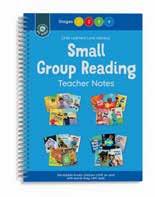





Key features
• Save planning and preparation time for small group reading sessions.
• Notes and advice are also useful for one-to-one reading and whole class reading
Milo’s Birthday Surprise
Start your explicit phonics teaching through an engaging story.
Stages: 1 2 3 4 :
✓ Oral language ✓ Phonological awareness ✓ Phonics ✓ Vocabulary

Look inside!
What is it?
In this delightful storybook, Milo Monkey calls his friends to invite them to his birthday party, but everybody is busy ... preparing a surprise for him! Each of Milo’s friends introduce a new sound and letter in an engaging way for young children.
Meet the new character.
Say all the ‘g’ words in the story together.
How do I use it?
Milo’s Birthday Surprise is also available on the App Store with embedded music.




Find all the ‘g’ things in the pictures together.

Search for clues about what birthday surprises are in store for Milo Monkey!
Use this storybook to introduce new grapheme-phoneme correspondences to children alongside the Teacher Activity Resource books and Speed Sounds and Chants Stages 1–6
• Read the story to children emphasising the focus sound as you read (in bold).
• Discuss what happened and any new vocabulary.
• Children find things in the illustrations beginning with the new sound.
• Introduce the upper- and lower-case letters using the side panel.
Key features





The new letter (grapheme) is introduced. Build suspense as the story continues … who will Milo call next?
• Characters become mnemonics to support reading and spelling.
• Each character has their own song on Spotify to enhance engagement and learning.
• Supports effective and systematic teaching of the simple alphabetic code in an engaging way.
Milo’s Birthday Surprise Placemat and Frieze
Enjoy talking about Milo Monkey and his alphabet friends.
✓ Phonics ✓ Phonological awareness

What is it?


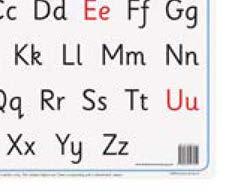
This sturdy laminated placemat is based on the storybook Milo’s Birthday Surprise – it features all of Milo’s friends on one side and the plain letter shapes on the other.


This beautifully illustrated A–Z frieze takes children on a journey through the alphabet with Milo Monkey’s alphabet friends. Perfect for classroom and bedroom walls!
Key features
• Includes all of the sounds and from the Little Learners Love Literacy® teaching sequence, Stages 1–4.
Stages: 1 2 3 4 : autifully udes acters alphabet


• The characters act as mnemonics for remembering the letters and sounds of the alphabet.
• These engaging reference tools perfectly match the Milo’s Birthday Surprise storybook and practice resources.
My Word Detective Book
A personal spelling dictionary organised by grapheme–phoneme relationships.
Stages: +4 6 7 : 5
✓ Phonemic awareness ✓ Decoding ✓ Spelling ✓ Vocabulary

What is it?
Look inside!

My Word Detective Book is a personal spelling dictionary designed to support children’s grapheme–phoneme correspondence recognition, spelling and writing. Pages are organised by phoneme, such as spellingsofthelong/ā/sound,orlearningconcept, such as consonant digraphs, to support mastery of the alphabetic code. The Little Learners Love Literacy® Speed Sounds and Chants mnemonics are included to support students’ memory.
How do I use it?
After reading the Little Learners decodable books, children can re-read to find words that use the focus phoneme and graphemes before writing them in lists and highlighting the target grapheme in the word.
Once their lists become populated, children can use their My Word Detective Book as a personal dictionary to support independent writing. Children write their words in sentences and illustrate them to develop their vocabulary and comprehension skills.

Key features
• Thick paper allows for use of felt pens without show-through.
• Makes re-reading of decodable books active and linked to spelling.
• A flexible tool that can be used to extend children who are ready to learn more alternative spellings.
Practice and Application Games

Read and Grab Word Game
Fast-paced phonics fun for every child!
✓ Decoding ✓ Fluency
What is it?
Read and Grab Word Game is a quick and competitive card game, encouraging students to read single words aloud multiple times – vital for building fluency. It’s perfect for small group instruction, Tier 2 intervention and playing at home to build reading skills and confidence.
Look inside!

How do I use it?


Children take it in turns to select and read a card. If another player has a word card with the matching colour and character, then they can ‘grab’ the card! Once a player has five cards, they have a set and no one can grab them! This card game is for 2–6 players. Video support is available on our website and YouTube channel.
Key features
• Allows children to practise reading decodable words, building automaticity and single-word fluency.
• Each box contains 75–85 playing cards providing a variety of sets to choose from each time you play.

• Includes wordlists showing each set of cards and their focus.











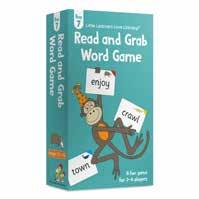



The Read and Grab games are so popular that they have become the reward at the end of our reading sessions!
Nikki
Stage 7.4
Stage 7.2 and 7.3
Stage 7.1-7.4
Stage 7.1-7.4
Stage 7.2
Decodable Quizzes
Generate lots of talk in your classroom with these quirky reading games.

What is it?




These unique and simple quizzes give children practice reading short decodable questions matched to the stages of the Little Learners Love Literacy® teaching sequence. They are perfect for sentence-level reading practice. The questions are fun and quirky and provide a springboard for interesting discussions that develop oral language, vocabulary and comprehension.
• The Wiz Kids Quiz Stages 1–4 contains 120 large-format, illustrated question cards linked to The Wiz Kids Stages 1–4 decodable books.
• Tim’s Quiz Stages 1–4, +4, 5, 6 contains 170 question cards linked to the Pip and Tim Stages +4, 5 and 6 decodable books.
• Big World Quiz Stages 7.1-7.2 contains 168 question cards linked to the Little Learners, Big World Stages 7.1-7.2 decodable books. Look inside!


How do I use it?
Children read decodable question cards and answer ‘yes’, ‘no’ or ‘maybe’. They must justify their answer using evidence from the illustrations and/or their background knowledge – no matter how silly the question is! Example questions from Tim’s Quiz Stages Plus 4, 5 and 6 include: ‘Did Goldilocks run from three possums? Do all kids like froth? Can a rock think?’ For The Wiz Kids Quiz and Tim’s Quiz players place their card on their bingo grid and play continues until they have filled it. In Big World Quiz, students work in pairs, taking turns to read the question card to their partner. The player answers ‘yes’, ‘no’ or ‘maybe’ and places a counter on the card’s corresponding answer icon. They must justify their answer using whole sentences.


Key features

This resource adds variety and excellent opportunities to practise and hone oral language using the terrific and now very familiar LLLL characters.
S. Donnan

At the end of the game, children re-read their favourite question before they write it and draw a picture to show their understanding.





Our decodable quizzes are designed for whole class partner practice Instructions and video support are provided with each quiz.
• Includes a QR code to access downloads including instructions, extension ideas and bingo play grids.
• Provides interesting decoding and fluency practice at sentence-level.
• Offers variety with hundreds of fun questions covering Stages 1–7.
• Writing extension activities included!
• Oral language practice.


Players place their card on their bingo grid.
Read, Write and Draw
Engaging independent reading and writing practice for every student.
✓ Decoding ✓ Fluency ✓ Vocabulary ✓ Comprehension ✓ Spelling
✓ Handwriting

What is it?

Read, Write and Draw is an engaging independent reading and writing practice routine for students working through every stage of the Little Learners Love Literacy® teaching sequence Each box contains decodable word cards, phrase cards and sentence cards for children to read aloud before writing, checking and finally drawing to show their comprehension
It’s a great way to gauge and informally assess the student’s reading and comprehension in a fun setting.
Melinda, VIC
Look inside!


How do I use it?
Independent procedure – students pick a card from the pile and read it aloud. Then, they turn the card over and write the word, phrase or sentence. Students read their writing to check for errors, check against the card, then illustrate their word, phrase or sentence to show their understanding.
Partner procedure – students work with their partner to dictate words, phrases or sentences to one another using a lucky dip bag.
Whole class procedure – teacher-led dictation following the Little Learners Love Literacy® ‘Six Super Steps’. Instructions and video support are provided through a QR code on the box.


Key features
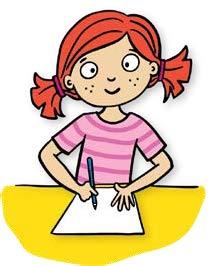



• Meaningful and robust independent practice routine.
• Builds vocabulary knowledge by reading and writing words with multiple meanings.
• Easily differentiate for students at word, phrase or sentence level, as well as stage.
• Includes a QR code to access instructions and support videos.
Sound Swap Word Game
Sound and letter manipulation in words for reading and spelling.
Stages: 1 2 3 4 +4 6 7 : 5
✓ Phonemic awareness ✓ Decoding ✓ Fluency ✓ Spelling
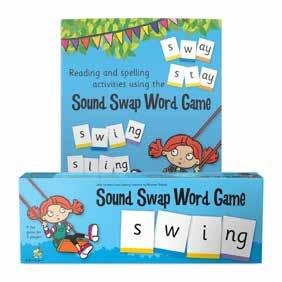
Look inside!
What is it?
Sound Swap Word Game practises phonemic awareness and phonics skills together for reading and spelling success. Children move cards to make words in a word chain, spelling hundreds of words without the cognitive load of handwriting! Each time students spell a new word in the chain, they practise advanced phonemic skills –substitution, addition and deletion – as well as blending and segmenting.
Sound Swap Word Game includes everything you need: 49 letter/sound cards, three word building boards and Sound Swap Word Chain Book
How do I use it?
The teacher chooses a word chain from the Sound Swap Word Chain Book The teacher dictates the first word in a chain for the child to build. The game can be played in two different ways:
• Ask children to swap a letter/sound card and tell you the new word (reading focus – more scaffolded).
• Tell children the next word and ask them what they need to change to make that word (spelling focus – more challenging).
Children can extend by writing their sound swap words on their mini whiteboards afterwards. Instructions and video support are available for both versions of the game. game afterwards










Key features




• Great value resource – covering Stages 1–7.4 in one box.
• Each card is colour-coded, making it simple to target your teaching.
• Makes the connection between spelling and reading explicit.
• Builds children’s spelling confidence without the cognitive load of handwriting.

Value pack available.
6 sets for the price of 5! See price list, page 67
Bingo Games
✓ Decoding ✓ Fluency
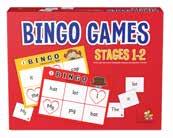
What is it?


Bingo Games give children lots of practise reading single words using the phonemes and graphemes they have learnt in the Little Learners Love Literacy® teaching sequence. Each box contains word cards and bingo boards. Look inside!

How do I use it?

The Bingo Games can be played by up to six players – perfect for small group work at school or a family game at home. Each player has their own board and take turns reading the shuffled word cards, matching the cards to their boards until the winning player (with a complete board) shouts ‘Bingo!’.
Key features
• Designed to build single-word fluency and student confidence.
• Each game also practises the Heart Words for each stage.
• All bingo words are linked to the Pip and Tim decodable books (Stages 1–Plus 4). esigned





Milo’s Games
Learn the letters and sounds of the alphabet with Milo.
Stages: 1 2 3 4 :

What is it?
Milo’s Alphabet Games is a pack of alphabet flashcards that link to the Milo’s Birthday Surprise storybook. The pack contains 26 letter cards to practise speed sounds and chants for Stages 1–4 of the Little Learners Love Literacy® teaching sequence, and 52 picture cards. You can play 19 different games with these cards to read and spell. ✓ Phonemic awareness ✓ Decoding ✓ Fluency
How do I use it?
Each of the 19 straightforward alphabet games is explained on the inside of the box. The speed sounds and chants videos on our website also provide a model. Use the cards to spell more than 200 words!

Look inside!

Look inside!

What is it?
Milo’s Read and Match Word Game includes eight boards with four pictures of consonant-vowel-consonant (CVC) words. There are 32 word cards to play. The aim is to read and match words to all four of the pictures on the game board.
How do I use it?
One by one, children turn a card over and read the word; if it matches an image on their board, they place it underneath the picture. Play continues until a player has a full board.
Milo’s Making Words Flipbook and Placemats
✓ Phonemic awareness ✓ Phonics ✓ Reading ✓ Spelling
What is it?
Milo’s Making Words Flipbook is a reading and spelling ‘hands-on’ literacy activity. Flip the book’s alphabet cards to create and discover new words!


Milo’s Making Words Placemats include two laminated placemats – one placemat has the Milo character mnemonics for the vowels and the other features just the graphemes. Children identify and circle letters and sounds in a sequence to spell words using an erasable board marker.


Key features
• Flexible resources that can be used over and over again.
• Provides lots of opportunity to apply sounds and letters learnt in the Milo’s Birthday Surprise storybook.
• Includes extension with ck, ll, ss, ff words (two letters, one sound).
Decodable Books


Little Learners Decodable Books
Australian books children LOVE to read with words they CAN read.
What are decodable books?
Decodable books are books that are ‘phonetically controlled’ to contain letter–sound correspondences that the reader has been explicitly taught. Children use their knowledge of graphemes (letters) and phonemes (sounds) to decode (read) the words in the text independently.
Decoding is the process of reading a word by sounding out and blending the sounds together from left to right:
The Little Learners decodable books
The Little Learners decodable books include stories and nonfiction texts that children can read by applying their phonics knowledge, with no guessing! Each book is carefully written to the Little Learners teaching sequence, so children can experience success in reading from the start of their journey. We have three series of decodable books:
The TheKidsWiz KidsWiz



The Little Learners decodable books increase in length and complexity as children move through the program. Although they are phonetically controlled to only contain the letters and sounds children have learnt, the fiction books are real stories with a range of characters and diverse plots, and the nonfiction texts are packed with facts and vocabulary.
Every Little Learners decodable book includes a ‘How to enjoy this book’ section at the back:
Speed Sounds and Heart Words to practise
Questions to discuss (including vocabulary)

Small Group Reading Teacher Notes
Speed Words for decoding warm-ups and additional reading practice
Every Little Learners decodable book is supported by Small Group Reading Teacher Notes for teachers’ use

Key features


• Fully decodable books children LOVE to read with words they CAN read.
• Seven expertly levelled stages for children to read – introducing sounds and letters in a tried and tested sequence.
• Each book includes notes and activities to support the development of reading fluency, comprehension and vocabulary.
Learn more: page 28
Pip and Tim
Engaging decodable stories featuring favourite characters Pip and Tim.
Stages: 1 2 3 4 +4 6 7 : 5
✓ Decoding ✓ Fluency ✓ Vocabulary ✓ Comprehension
What is it?
The Pip and Tim series of decodable books are real stories that follow the Zan family on a range of fun adventures and new experiences. With plenty of humour, diverse language features and cross-curricular topics this decodable book series offers much more than decoding practice.
Look inside!


How do I use it?
Use the Pip and Tim books to apply knowledge and skills taught during Little Learners Love Literacy® explicit lessons. Books can be used for small group and whole class instruction, as well as partner, independent reading and take-home reading.
Supporting resources include:
Pip and Tim Character CardsSmall Group Reading Notes






Key features
• Fully decodable, following a tried and tested teaching sequence.
• Include notes on ‘How to enjoy this book’.
• Feature a page of Speed Words for additional reading practice.
• Apps available through the Apple App and Google Play Store.
• Vibrant illustrations by Danielle McDonald, illustrator of the Ella Diaries series.
Pip and Tim, Stage 2, My Hat
Pip and Tim, Stage 7.2, Airy Fairy Fair
Stage 1 Stage 2 Stage 3 Stage 4 Stage +4 Stage 5









































































Little Learners, Big World
What is it?
The Little Learners, Big World nonfiction series covers a range of relevant topics and text types, packing in as many facts as possible! Children will build content knowledge and vocabulary – vital for the development of comprehension. Nonfiction text features are used throughout, including labels, captions, fact files, contents, headings, tables, indexes, diagrams and infographics. Beautifully designed with a hybrid photographic and illustrative visual approach, these books will engage children and enable them to experience success.































How do I use it?
Little Learners, Big World nonfiction books can be used for independent reading, take-home or classroom reading sessions. Use as additional practice for children after they have read the Pip and Tim books at that stage, noting that nonfiction concepts and vocabulary are more challenging to read than decodable fiction. After reading, use the ‘Talk about it’ page to:
• summarise and recount facts from the book using visual prompts
• build vocabulary
• deepen comprehension – the ‘Be curious’ question asks children to relate the content of the book to personal experiences, compare and contrast, and think creatively.
Supporting resources include:


Downloadable resources available through a QR code in the back of every book:











Small Group Reading Teacher Notes for each book:







Key features
• Decodable nonfiction packed with facts on a range of local and global topics.
• A range of nonfiction text features used throughout.
• Every book includes a ‘Talk about it’ page and ‘Did you know?’ download focusing on content knowledge, vocabulary and writing.




































Little Learners, Big World




































The Wiz Kids
A
fun
variety of fully decodable stories for early reading practice.
Stages: 1 2 3 4 +4 6 : 5
Decoding ✓ Fluency ✓ Vocabulary ✓ Comprehension
The TheKidsWiz KidsWiz
Look inside!
What is it?
This fun and funky series of decodable books provide additional reading practice matched to the Little Learners Love Literacy® stages. New characters are introduced in every stage to keep students engaged and to provide variety. These stories are perfect for children to continue developing their decoding skills and fluency, with plenty to discuss and explore, too.


How do I use it?
The Wiz Kids books can be used for independent reading, take-home practice or classroom reading sessions. Use as additional practice for children after they have read the Pip and Tim books at that stage.
Supporting resources include:

Key features
• Adds variety and breadth to your range of decodable books.



• Fully decodable stories written by Berys Dixon and beautifully illustrated by Elenio Pico.
• Perfect for take-home practice, with notes in the back for parents and classroom support staff.
The Wiz Kids, Stage 2, Pop!
The Wiz Kids, Stage 4, Jet Set Kids
The Wiz Kids Character CardsSmall Group Reading Teacher Notes











































Fox Kid
Helping ALL kids to become reading superheroes.
✓ Decoding ✓ Fluency ✓ Vocabulary ✓ Comprehension ✓ Spelling
Fox Kid Chapter Books


How do I use it?
What is it?
A new series of decodable chapter books specifically designed for struggling readers, especially those who’ve ‘missed the boat’ in the early years of school
Raise engagement and motivation through success by using decodable text, with a systematic sequence and steady progression Enabling children to master the application of phonic knowledge for word reading, building reading fluency and confidence

Speech Pathology
Australia’s Decodable Book Series award winner 2024!
Best books so far, the chapter books have made it much more inclusive. It’s really made my son want to read and be just like his peers.
Mandy
For struggling readers, intervention using a systematic synthetic phonics approach is vital. The Fox Kid series provides much-needed practice supporting the learning taking place in Tier 2 and 3 interventions. Each Fox Kid decodable chapter book is divided into short chapters and comes with a handy bookmark to break the story up across several short reading sessions. Teacher notes and pre and post-reading activities are included in the back of each book.
Use alongside the Fox Kid Workbooks, Ka-Blam! card game and other Little Learners Love Literacy® resources such as Sound Swap, Let’s Write and Read and Grab to deliver effective intervention sessions.




Engaging and age-appropriate decodable books for struggling readers.




Student activities include retelling, decodable quizzes and much more.


Teacher notes provide background information, guidance, vocabulary checks and comprehension questions for each chapter.
MEET THE AUTHOR AND ILLUSTRATOR
Adrian Beck writes funny, action-packed stories for kids including the Furball series, the Derek Dool series and the Little Legends series with Nicole Hayes. Adrian has also written the much-loved picture books Stop The Dad Jokes! and Bears in Flares. Adrian is passionate about fostering a love of reading amongst the next generation and lives with his small footballloving family in Melbourne

Key features
• Written and illustrated by Australian children’s author, Adrian Beck.
• Hilarious age-appropriate stories of 80-104 pages that look comparable to chapter books available in book stores and libraries
• Written to a structured, tried-and-tested phonics scope and sequence.
• Packed with extras for students and teacher support.
Book an author visit with Adrian Beck on our website!
Fox Kid Workbooks
What is it?
Evidence-based targeted activities aligned to the Little Learners Love Literacy® teaching sequence and Fox Kid chapter books The workbooks are designed for intervention, covering phonics and phonemic awareness; decoding and word recognition; fluency; vocabulary and comprehension; spelling and writing skills
Look inside!






What is it?
The Fox Kid series includes an exciting card game Ka-BLAM! With three fun ways to play, the aim is to practise decoding and build single-word reading fluency and automaticity/word recognition In Game 1, the first player to discard all of the cards in their hand wins a round (like in ‘Uno™’). The winner of the round collects points using the numbers on the word cards and points from action cards from the remaining players The first player to reach 100 points, collected across multiple rounds, wins! But watch out for the exploding card ... Ka-BLAM! Game over! The same cards can also be used to play ‘Go fox!’ (a fox-tastic version of Go fish!), and Read and grab



Key features
• Written by intervention specialist Tomi Liddle.
• Written to a tried and tested phonics scope and sequence.
• Activities are purposeful – building both reading and writing skills.


Books and Workbooks
Chapter



Stages: 1 2 3 4 (the simple code)


Stages: +4 5

Stages: 5 6






(double letters and adjacent consonants)


(consonant digraphs)




Stage: 7.1






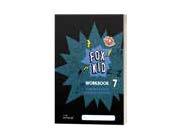


Long vowel sounds, morphology, homophones
Stage: 7.2
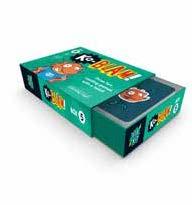
Chapter books & Workbooks 9 & 10


SOON! Chapter books & Workbooks 11 & 12 COMING


Stage: 7.3
COMING SOON and
Brand new decodable detective adventures!
Learn to read and read to learn with the Wild Detectives.


Written



by Louise Park | Illustrated by Jules Faber
Home Reading Journals
A
evidence-based home reading journal.
Decoding
Fluency

How do I use it?
Vocabulary

Comprehension
What is it?
Reading and talking at home is vital for the development of children’s literacy skills Our Home Reading Journals will help parents and carers to establish and maintain a regular reading routine using the decodable books and library books sent home from school. There is a journal for Foundation Year and Year 1
Send the journal home with decodable books (for children to read to their parents) and library books (for parents to read to their children and discuss using the tips included in the journal)
Children and parents fill in the reading log each night they read together. Each night of reading is numbered, and children achieve rewards and activities after every 25-night milestone is reached



Highly recommend these journals. A great way to monitor decodable and library books (books of interest) and students’ level of independence.
Sarah
Key features
• Supports home reading practice aligned to evidence-based classroom instruction.
• Includes accessible tips and information for parents.
• Packed with certificates, fun phonics challenges and other activities to reward children as they reach their reading milestones.

Little Learners Assessment of Reading Skills
student progress.

What is it?
The Little Learners Assessment of Reading Skills (LLARS) assesses the scope and sequence of the Little Learners Love Literacy® explicit teaching program The aim is to assess and monitor students’ skills and knowledge to inform teaching and identify the specific needs of each student The LLARS will identify, in diagnostic detail, what students know and to what level they can apply their skills and knowledge to reading.









How do I use it?
The LLARS is administered individually twice a year. It comprises four subtests:
• Subtest 1: Grapheme–phoneme knowledge
• Subtest 2: Decoding nonwords
• Subtest 3: Reading Heart Words (optional)
• Subtest 4: Reading unseen decodable texts
Teachers can access a range of professional learning support for free on the Little Learners Love Literacy® website.
The LLARS comprises:
• an Assessment Manual containing an introduction; detailed administration and marking guidance for each subtest; teacher forms; and a QR code to access the digital downloads
• Assessment Materials in a laminated flipbook for students
• Marking cheat sheet for easy reference during assessment
• Digital downloads including PDF Teacher forms for printing, LLARS Class Record (Excel spreadsheet) to analyse your class data for the full year and a brand-new set of unseen texts (Stages 1–7 5) for students who are taking longer to master each stage




Key features
• Available in print and digital formats.
• Assessment that aligns with and informs your reading instruction.
• Reveal precise gaps and next steps for students.
Little Learners Assessment of Spelling Skills
A diagnostic spelling assessment designed to inform teaching and monitor student progress.
Stages: 1 2 3 4 +4 6 7 5
✓ Spelling

Look inside!
What
is it?
The Little Learners Assessment of Spelling Skills (LLASS) follows the Little Learners Love Literacy® teaching sequence to reveal to what extent children can apply their phonologic and morphologic knowledge to spell with accuracy, and to identify any gaps in students’ knowledge of grapheme–phoneme correspondences
How do I use it?
Administer the LLASS twice per year over two sessions. Use the script and spelling lists provided to administer the assessment. Record results in the Class and Student Record spreadsheets to display a whole class view of performance.



Key features


• Supports explicit teaching of spelling from the very beginning of school.
• Produces rich and informative data to support planning of class teaching and effective interventions.
• Includes a print copy and a digital copy.
Teaching Resources Professional Learning
Teaching Resources cont.
Practice and Application Games cont.
Decodable Books
Decodable Books cont.
Decodable Books cont.
Little Learners
Classroom Value Pack

What is it?
This pack offers three options to suit your classroom needs:
• Teacher Toolkit only
• Teachers Toolkit +5 copies of decodable books, or
• Toolkit +10 copies of decodable books.

This
1,220

Teaching ALL children to read, write and spell with confidence.
littlelearnersloveliteracy.com.au
